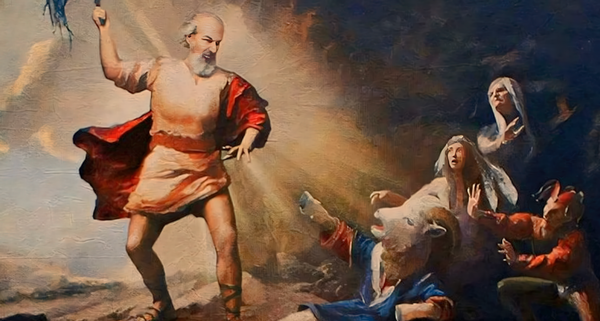What's Next in Human Evolution?

A friend recently asked me, "What's the next step in human evolution?" As much as I have read about evolutionary biology and psychology, I had never considered this. I think there are a few reasons for this.
These reasons are outlined below:
1. Evolution does not imply progress.
There is so much misunderstanding about what evolution means. The first thing to remember is that evolution does not lead to better organisms. The engine behind evolution, or change, is natural selection. Dictionary.com defines natural selection as "The process in nature by which, according to Darwin's theory of evolution, only the organisms best adapted to their environment tend to survive and transmit their genetic characteristics in increasing numbers to succeeding generations while those less adapted tend to be eliminated." That brings us to rule 2.
2. Evolution is simply an organism's adaptation to a local environment.
Paleontologist Stephen Jay Gould had a great way of describing rule 2:
Biologists continue to be amazed by the dramatic diversity of species generated over millions (and sometimes billions) of years. Many species are so well adapted to their local environments that their existence is necessary for the entire local ecosystem (see Interesting Thing of the Day). This is why scientists study ecological niches to discover significant climate changes – because these ecosystems are so sensitive to minor fluctuations in global climate.
3. Evolution often takes major, dramatic leaps in a short time.
The quote above from Gould about dinosaurs points out how quickly a significant jump, or "punctuated equilibria," can occur. These significant changes can happen on a very localized level or impact an entire planet – as in the example of dinosaurs. We have every reason to believe that humans would never have come into being without mass extinctions. Contrary to popular belief, humans did not co-exist with dinosaurs. The first mammals emerged around this time and were small and fast enough to stay out of the jaws of hungry dinosaurs. After the mass extinction, mammals owned the planet. Dinosaurs would have continued right along without the meteorite that changed everything. They had ruled the Earth for 100 million years, and there was no reason to believe the dinosaurs' rule over the Earth would have been challenged.
4. The force behind evolution is genetic mutation.
Though there is currently a debate about the role of proteins in the transmission of heredity (see The next revolution in science?), the central dogma in molecular biology is that random genetic mutation is the only way an organism can change. If a mutation helps an organism adapt to its local condition (rule 2), it is said to have a high "fitness factor." Translation: if this particular organism has a slight advantage over other organisms because of this mutation, they will be more successful at mating and having stronger offspring (with a higher fitness factor). The genetic mutation could also be horrific – as many genetic diseases are – and this can cause an organism to die young or have a low fitness factor. Eventually, these mutations are weeded out in the population.
Also, based on rule 2, a genetic mutation with a high fitness factor in one local environment could have a low factor in a new environment. The classic case is sickle cell anemia. Sickle cell is a genetic disease that is much more common in people from Sub-Saharan Africa and alters the shape of red blood cells, making it very difficult for their blood cells to bind to oxygen. However, this same mutation also makes it very difficult to contract malaria. So, when people from these areas of Africa began moving into other climates where malaria was not a problem, their mutation was no longer an asset; it was a liability.
Conclusion & Summary
To summarize, evolution has no purpose or direction. It is simply random mutations occurring in an organism's DNA that make it either more or less adapted to the circumstances in which they find itself.
Humans are probably the least well-adapted creatures on the planet. Instead, we have managed to use tools to shape our environment. Natural selection is now being executed by humans rather than nature on a scale never before seen. This appears to be unique among life on Earth. With the advances in science and medicine, even some of the worst genetic disorders (or mutations) will be treatable, and life will improve with time. So, rather than continuing to evolve at a rapid clip, I believe humans are slowing down because of technology. I think we have plenty of ability to continue transforming the planet and solar system to our needs for thousands of years to come without much change in our morphology or DNA. However, Gould's anecdote about the dinosaurs is a grim reminder of a potentially fatal future. Punctuated equilibria, whether in the form of a comet or several nuclear bombs, is real and have shown up more than once in our planet's history. I hope for a more optimistic future where humans reach out for the stars and colonize other worlds – perhaps in new galaxies millions of years from now. As for the future of humanity, once our local environment changes significantly and we master the genetic code, the possibilities are limitless.




